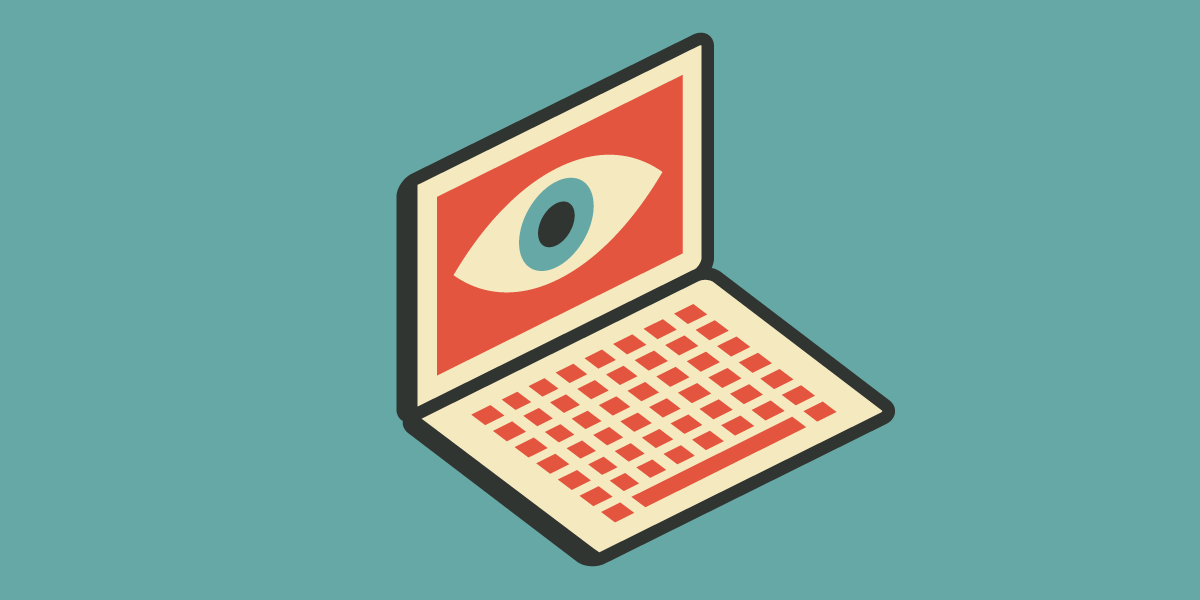In an era dominated by digital connectivity, it’s become increasingly important to be aware of the potential threats to our online privacy. The internet, while offering countless benefits, also exposes us to surveillance activities that can compromise our personal information and browsing habits. This article aims to shed light on the various entities that engage in online surveillance and provides insights into safeguarding our privacy in an increasingly interconnected world.

- Government Surveillance: Governments around the world conduct surveillance for various reasons, such as national security or law enforcement purposes. Intelligence agencies and law enforcement organizations may monitor online communications, collect metadata, and employ advanced technologies to track individuals’ online activities. Laws and regulations regarding government surveillance vary across jurisdictions.
- Corporate Surveillance: Many online platforms and companies track user behavior to gather data for targeted advertising, product development, and user profiling. Tech giants and social media platforms often employ sophisticated algorithms and cookies to collect and analyze user data, including browsing habits, search history, and social interactions. This information is then used to deliver personalized content and advertisements.
- Cybercriminals: Cybercriminals, including hackers and malicious actors, exploit vulnerabilities in software, networks, and devices to gain unauthorized access to personal information. They may engage in activities like identity theft, financial fraud, or unauthorized surveillance. This underscores the importance of maintaining strong security measures and being vigilant about protecting personal data.
- Advertisers and Data Brokers: Advertising networks and data brokers collect and trade user data for targeted advertising purposes. They track users across websites and apps, compiling extensive profiles that include demographics, interests, and online behaviors. This information is then used to deliver tailored ads, often without explicit user consent.
- Internet Service Providers (ISPs): ISPs have the ability to monitor and log users’ internet activities. In some cases, ISPs may retain this data for a certain period or share it with third parties. This monitoring can provide insights into users’ browsing habits, including the websites visited, search queries, and downloads.

Do big companies spy on us?
The term “spying” typically implies covert surveillance conducted without the knowledge or consent of the individuals being observed. While big companies like Google and Facebook do collect data from their users, it is important to distinguish between data collection for various purposes and deliberate spying.
- Data Collection for Service Enhancement: Big companies collect user data as part of their business operations. This includes information such as search queries, website visits, location data, and interactions on their platforms. The primary goal of this data collection is to enhance their services, personalize user experiences, and improve targeted advertising.
- User Consent and Terms of Service: When you use services provided by big companies, you usually agree to their terms of service, which outline how they collect and use your data. These terms typically include information about data collection practices, data sharing with third parties, and targeted advertising. By using their services, you provide consent to the data collection methods described in their terms.
- Transparency and User Controls: In recent years, there has been an increased emphasis on transparency and user controls regarding data collection by big companies. Many of these companies have implemented tools and settings that allow users to review and manage their privacy preferences. They provide options to control data sharing, adjust privacy settings, and opt out of personalized advertising.
- Legal and Regulatory Compliance: Big companies are subject to laws and regulations related to data privacy and protection. They are required to comply with relevant regulations, such as the General Data Protection Regulation (GDPR) in the European Union and the California Consumer Privacy Act (CCPA) in the United States. These regulations aim to ensure that user data is handled responsibly and provide individuals with certain rights regarding their personal information.
While big companies do collect and analyze user data for various purposes, including improving their services and targeted advertising, it is typically done within the framework of their terms of service and with user consent. However, it is important for users to be informed about the data collection practices of these companies, review privacy settings, and make choices that align with their privacy preferences.

How can someone take advantage of spying on you on the web?
When someone spies on you on the web, they can potentially exploit the information they gather for various purposes. Here are some ways in which someone can take advantage of spying on you:
- Identity Theft: By monitoring your online activities, an individual or group can gather personal information such as your name, address, date of birth, social security number, or financial details. This information can be used to impersonate you or commit identity theft, leading to fraudulent activities, unauthorized access to your accounts, or financial loss.
- Financial Fraud: Spying on your online behavior can provide valuable insights into your financial transactions, including banking details, credit card information, and online shopping habits. This information can be used to conduct fraudulent transactions, make unauthorized purchases, or drain your bank accounts.
- Blackmail or Extortion: Spies may gather compromising or sensitive information about you through online surveillance. They can then use this information to blackmail or extort you by threatening to expose it publicly or share it with others who could harm your personal or professional reputation.
- Targeted Social Engineering Attacks: By closely monitoring your online interactions, spies can gather details about your social connections, interests, and personal relationships. This information can be exploited to craft targeted social engineering attacks, such as phishing emails, fake social media messages, or scams designed to manipulate you into revealing further personal information or performing certain actions.
- Stalking or Harassment: Spies who intrude on your online activities may use the gathered information to stalk or harass you. They may track your movements, monitor your social media posts, or invade your privacy by accessing private messages or photos. This can lead to emotional distress, invasion of personal space, and potential physical harm.
- Reputation Damage: By collecting and manipulating information about you, spies can tarnish your reputation by spreading false or misleading information online. They may create fake social media profiles, post defamatory content, or engage in cyberbullying, which can have long-lasting negative consequences for your personal and professional life.
- Surveillance for Political or Social Control: In some cases, governments or powerful entities may conduct online surveillance to monitor individuals or groups they perceive as threats or opposition. This surveillance can lead to suppression of free speech, infringement of human rights, and a chilling effect on activism or dissent.
Protecting yourself from these risks involves maintaining good cybersecurity practices, being cautious about the information you share online, using strong and unique passwords, regularly updating your software, and being vigilant for any suspicious activities. Additionally, familiarize yourself with privacy settings on social media platforms and use encryption tools to enhance the security of your online communications.

10 Steps to Enhance Your Online Anonymity and Privacy
- Use a Virtual Private Network (VPN): A VPN encrypts your internet connection and routes it through a server, masking your IP address and making it difficult to trace your online activities back to you. Choose a reputable VPN service and enable it before accessing the internet.
- Tor Browser: The Tor (The Onion Router) network allows you to browse the web anonymously by routing your internet traffic through multiple volunteer-operated servers. It helps conceal your IP address and enhances privacy. Download and use the Tor Browser for anonymous web browsing.
- Create Anonymous Accounts: When signing up for online services or social media platforms, consider using anonymous or pseudonymous usernames and email addresses that do not directly link to your real identity.
- Limit Personal Information Sharing: Be cautious about sharing personal information online. Avoid providing unnecessary details or sensitive data on websites, forums, or social media platforms. The less personal information available, the harder it is to link online activities to your real-world identity.
- Secure Browser Settings: Adjust your browser settings to enhance privacy. Disable or limit cookies, clear your browsing history regularly, and use private browsing or incognito mode whenever possible. Additionally, consider browser extensions that block tracking scripts and protect your privacy.
- Use Secure Messaging Apps: When communicating with others, choose messaging apps that prioritize end-to-end encryption, such as Signal or WhatsApp. These apps help ensure that your conversations remain private and inaccessible to third parties.
- Be Mindful of Metadata: Even if you take steps to anonymize your online presence, be aware that metadata, such as the timing, size, and recipients of your communications, can still reveal patterns and connections. Consider the potential implications of metadata when communicating or sharing files.
- Strong Passwords and Two-Factor Authentication: Create unique and robust passwords for each online account you have. Enable two-factor authentication whenever possible, as it adds an extra layer of security to your accounts.
- Avoid Public Wi-Fi and Use HTTPS: Public Wi-Fi networks can be insecure, so it’s best to avoid accessing sensitive information or logging into accounts while connected to them. When browsing websites, ensure that they use HTTPS encryption to protect your data in transit.
- Regularly Update Software: Keep your operating system, web browser, and other software up to date. Software updates often include security patches that address vulnerabilities, reducing the risk of being exposed to potential privacy breaches.
While these steps can help enhance your online anonymity, it’s important to remember that achieving complete anonymity is challenging. There is always a potential risk of unintentional data leaks or compromises. Assess your own privacy needs and make informed decisions accordingly.
Do you have any privacy concerns while surfing the web? Share them in the comments section below!


Leave a Reply